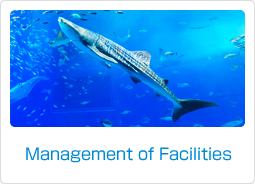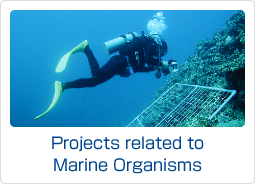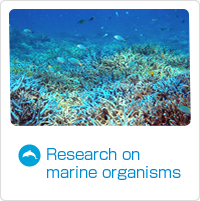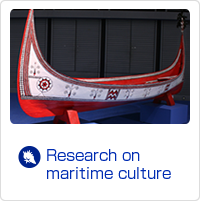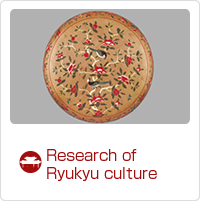- Home
- Okinawa Churashima Foundation Research Institute
- Studies of Marine Animals
- Research activity report
- Growth analysis and population size of coconut crabs inhabiting Ocean Expo Park.

Research on marine organisms
Growth analysis and population size of coconut crabs inhabiting Ocean Expo Park.
The coconut crab is the largest terrestrial crustacean. It inhabits tropical and subtropical zones of the Indo-Pacific. The global population is decreasing due to overhunting and habitat destruction.
From 2006 to 2019, the Okinawa Churashima Foundation conducted surveys of the coconut crabs that live within Ocean Expo Park. The accumulated data from the 14-year study, including 350 surveys, revealed the rate of growth of coconut crabs and their population size. 506 datasets were obtained from mark-recapture surveys. The results showed the growth of female coconut crabs was significantly slower than males. It would take 10 years for a male, and over 25 years for a female, to reach 500 grams, the approximate size of coconut crabs that are consumed for food. The lifespan of both male and female coconut crabs was estimated at over 50 years.
The population estimate for Ocean Expo Park is around 1,000 coconut crabs, which is a similar density to other equatorial islands where coconut crabs are found.
The global population of coconut crabs is decreasing. The findings of this research give insights into their ecology. The data will be important when considering the conservation and resource management of the species. Okinawa Churashima Foundation will continue to conduct surveys to aid in the sustainable use and conservation of coconut crabs.
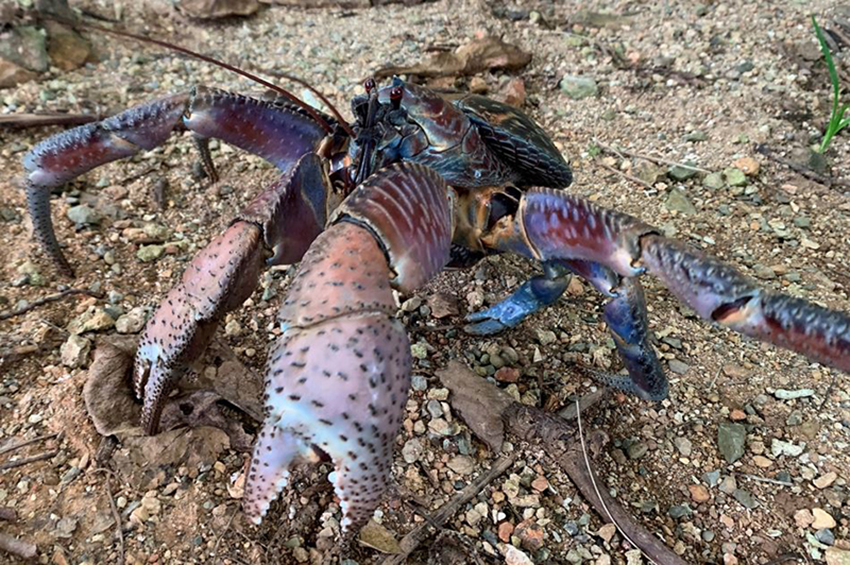
Authors
Shin-ichiro Oka, Koji Tokutake, Tadanobu Inoue
Title
Growth analysis and population size estimation of coconut crabs based on a large recapture dataset
Journal
Crustacean Research (DOI:10.18353/crustacea.50.0_145)
Link
https://www.jstage.jst.go.jp/article/crustacea/50/0/50_145/_article/-char/ja
Copyright (c) 2015 Okinawa Churashima Foundation. All right reserved.













